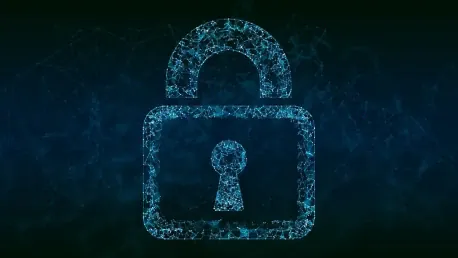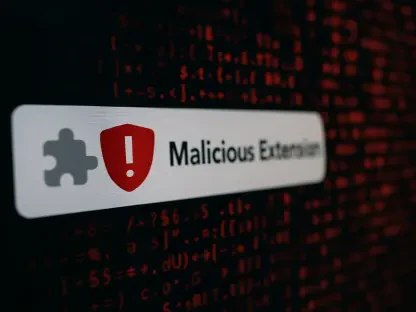Recent revelations about a significant cybersecurity breach involving the personal data of thousands of congressional staffers have raised alarms about the vulnerabilities facing political environments. The exposure of sensitive information such as passwords, IP addresses, and social media details has broader implications, especially as the U.S. gears up for another presidential election. This article delves into the extent of the breach, causes, responses, and the broader cybersecurity concerns.
The Cybersecurity Breach: An Overview
The cybersecurity breach discovered by Proton in collaboration with Constella Intelligence revealed that sensitive personal information belonging to approximately 3,191 congressional staffers had been leaked onto the dark web. This information included crucial details such as passwords and IP addresses. Of particular concern was the fact that staffers’ official email addresses were used to register on various online services, including high-risk sites like dating and adult platforms.
Highlighting the scope of the breach, over 1,848 passwords were found to be compromised, with one staffer alone having 31 passwords exposed. The volume of compromised accounts underscores significant lapses in cybersecurity practices and the potential for far-reaching consequences. Such breaches not only jeopardize personal security but also pose a substantial threat to national security, given the sensitivity of the information involved.
The data leak extends beyond personal inconvenience, opening the door to various forms of cyber exploitation. Malicious actors could use the compromised information for identity theft, phishing attacks, and other harmful activities. The timing of this revelation, with the U.S. presidential election on the horizon, adds an additional layer of urgency to addressing these vulnerabilities. The breach serves as a striking reminder of the critical need for stringent cybersecurity measures within all political sectors.
Causes and Implications of the Breach
The investigation by Proton and Constella Intelligence shed light on the causes behind the leak, pinpointing the use of official emails for less secure third-party platforms. This choice drastically increased vulnerabilities, making it easier for malicious actors to exploit the data on the dark web. Staffers’ reliance on their official email addresses for registering on various online services reveals a significant lapse in observing basic cybersecurity protocols, rendering them susceptible to exploitation.
The implications of this breach are profound. With such sensitive information exposed, there are heightened risks of identity theft, phishing attacks, and other forms of cyber exploitation. Moreover, as these congressional staffers often deal with confidential and critical national security matters, the breach poses a threat not only to personal security but potentially to national security as well. The exposed data can be weaponized to gain unauthorized access to secure information, jeopardizing not just individual staffers but the broader political infrastructure.
Furthermore, the leak points to a significant gap in cybersecurity awareness and training among political staffers. This gap underscores the urgent need for comprehensive education on digital security practices. The breach is not merely a call for technical fortification but also an urgent plea for an overarching cultural shift towards prioritizing cybersecurity at all levels of political operations. Reinforcing awareness and adherence to best practices could be crucial in mitigating the severe consequences that such breaches entail.
Proactive Measures Taken by Cybersecurity Firms
Upon discovering the breach, Proton swiftly moved to inform all affected congressional staffers about the exposure of their data. The firm clarified that none of the compromised information was related to their services, which focus on providing encrypted email accounts and password managers. Despite this, Proton saw the need to share its findings as part of a broader effort to highlight the increasing importance of robust cybersecurity practices. Their swift action provides a critical lifeline in the immediate aftermath of the breach, offering transparency and guidance to those affected.
Proton has expressed its intention to provide further details about the breach on its blog. This proactive approach underscores the company’s commitment to cybersecurity and serves as a crucial reminder of the importance of adhering to best practices, especially in political environments. The dissemination of information about the breach serves not only as a cautionary tale but also as an educational tool aimed at bolstering the cybersecurity literacy of political staffers and the broader public.
The firm’s efforts symbolize a heartening move toward a more secure digital ecosystem. They emphasize the role of private companies in aiding the public sector to bridge its cybersecurity gaps. Proton’s actions stand as an exemplary model for other firms to follow, illustrating the impact of proactive, transparent, and accessible communication in mitigating the ramifications of cybersecurity breaches. Their example advances the collective understanding and reaffirms the significance of collaborative efforts in tackling cybersecurity threats across sectors.
Broader Cybersecurity Concerns in Political Circles
The breach faced by congressional aides is not an isolated incident. It points to broader cybersecurity concerns within political circles. Notably, Google recently cautioned that family and friends of political candidates, along with their campaigns, need to be vigilant against foreign hacking attempts. These types of breaches and warnings highlight the complex vulnerabilities associated with political campaign environments. The digital interconnectedness of modern campaigns makes them particularly susceptible to sophisticated cyber-attacks, amplifying the stakes involved.
Political campaigns are particularly enticing targets for foreign hackers due to the sensitivity and high stakes involved. The risk of gaining access to confidential information or manipulating data can have significant implications on the electoral process and public trust. The potential for such breaches to influence election outcomes or compromise the integrity of political discourse underscores the critical importance of robust cybersecurity measures within these environments.
The broader cybersecurity landscape necessitates a heightened awareness and strategic approach to safeguarding digital assets. As revealed, foreign adversaries continually adapt their tactics, a reality that demands the political sector to remain perpetually vigilant and adaptive. Implementing multi-layered defensive measures and fostering a culture of cybersecurity awareness within campaigns can serve as pivotal steps in countering these evolving threats. The breach underscores the need for political entities to treat cybersecurity as an integral component of their operational frameworks, incorporating it as a cornerstone of their strategic imperatives.
Notable Examples of Recent Threats
There have been notable instances of foreign hacking efforts aimed at influencing U.S. elections, exemplified by the actions taken by Google’s Threat Analysis Group. This group thwarted attempts by an Iranian hacking unit to breach the campaigns of both former President Donald Trump and President Joe Biden earlier this year. The intervention highlights the sophisticated nature of these cyber-attacks and the persistent threats they pose to the democratic process.
Furthermore, the Biden administration disclosed that Biden’s campaign received unsolicited emails from Iranian hackers containing stolen information from Trump’s campaign. Although specific details of the stolen information have not been provided by federal agencies, previous reports indicate that sensitive research about Republican politicians may have been compromised. These instances exemplify the sophisticated and insidious nature of modern cyber threats, where foreign actors leverage stolen data to infiltrate and manipulate political landscapes.
The ongoing cyber threats necessitate comprehensive strategies to protect political campaigns and their associated digital assets. Enhanced security protocols, combined with a relentless vigilance against unsolicited communications and potential breaches, can help mitigate these risks. The proactive collaboration between governmental and private cybersecurity entities is indispensable in preemptively identifying and neutralizing such threats, ensuring the integrity and confidentiality of political campaigns.
Foreign Preferences in U.S. Elections
The cybersecurity landscape is further complicated by indications that foreign entities have specific preferences for U.S. election outcomes. For instance, statements made by Microsoft President Brad Smith suggested that Iranian cyber operations exhibited a preference for a win by Vice President Kamala Harris. In contrast, Russian cyber efforts seemed to be aimed at discrediting the Democratic nominee, indicating potential support for Trump. These foreign preferences reflect broader geopolitical strategies and underscore the intricate interplay between cybersecurity and international politics.
These preferences and interventions reflect the evolving tactics of foreign adversaries and the necessity for robust defenses and vigilant monitoring of cyber activities within the U.S. political sphere. They highlight the importance of understanding the geopolitical motivations driving cyber-attacks, as such knowledge can inform more targeted and effective defensive measures. The intertwined nature of digital security and international relations necessitates a holistic approach to cybersecurity, one that accounts for the broader political context.
Addressing these challenges requires a coordinated effort that transcends national boundaries. International cooperation, along with stringent domestic cybersecurity policies, can play a crucial role in neutralizing the influence of foreign cyber actors on U.S. elections. By forging alliances and leveraging collective expertise, nations can bolster their defenses against shared cyber threats, fostering a more secure global digital landscape.
The Path Forward: Increased Vigilance and Enhanced Security Measures
Recent revelations about a major cybersecurity breach have raised alarms, as personal data of thousands of congressional staffers were compromised. This breach exposed sensitive information, including passwords, IP addresses, and social media details, underscoring the vulnerabilities inherent in political environments. As the U.S. gears up for another presidential election, the implications of this exposure are particularly concerning. This incident not only highlights the extent of the breach but also points to systemic issues in cybersecurity protections. The breach serves as a wake-up call for stricter security measures and protocols to safeguard such crucial information. The fallout from this event has prompted immediate responses from government agencies, technology experts, and security firms, all of whom are working to understand the causes, address the vulnerabilities, and prevent future incidents. Additionally, this breach brings to light the broader cybersecurity concerns that could impact not just the political arena, but various sectors that rely on secure data transmission and storage.








